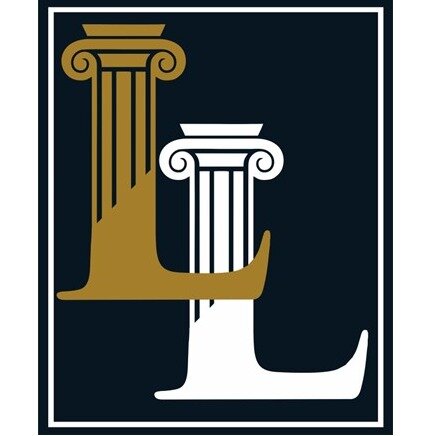Best Faith-Based Law Lawyers in Manila
Share your needs with us, get contacted by law firms.
Free. Takes 2 min.
List of the best lawyers in Manila, Philippines
About Faith-Based Law in Manila, Philippines
Faith-Based Law in Manila, Philippines, often involves the intersection of legal principles with religious beliefs and practices. It primarily concerns matters where religious laws influence legal decisions, particularly in areas such as family law, marriage, and freedom of religious practice. The Philippines' rich tapestry of religions, predominantly Catholicism, impacts many aspects of societal norms and consequently the legal framework within which faith-based issues are navigated. Organizations, families, and individuals may face unique challenges when religious laws or doctrines intersect with civil laws.
Why You May Need a Lawyer
People may require legal assistance in Faith-Based Law for a variety of reasons. Common scenarios include disputes over religious property or assets, legal considerations around religious employment, marriage annulments or divorce where religious law conflicts with civil law, and issues relating to religious discrimination. Lawyers specializing in this field can offer guidance on navigating both civil statutes and religious doctrines, ensuring compliance and protecting the rights of parties involved.
Local Laws Overview
The key aspect of local laws relevant to Faith-Based Law in Manila is the interplay between the civil law system and religious doctrines. Although the Philippines operates under a democratic civil law system, religious beliefs heavily influence many aspects, such as marital laws and regulations around religious institutions. Provisions like the Family Code address marriages and annulments which may have religious connotations. Additionally, laws related to anti-discrimination protect religious freedom and ensure equal treatment irrespective of faith.
Frequently Asked Questions
1. What is Faith-Based Law?
Faith-Based Law involves legal issues that intersect with religious practices and doctrines, encompassing areas where religion affects legal affairs like marriages, employment, and property.
2. How does the Philippine legal system address conflicts between civil law and religious laws?
The Philippine legal system respects religious beliefs but prioritizes civil law in legal proceedings, though accommodations may be made where feasible to honor religious practices.
3. Can religious groups own property in Manila?
Yes, religious groups can own property in Manila, but they need to adhere to both civil property laws and applicable religious guidelines when acquiring, managing, or transferring property.
4. Are marriages different under Faith-Based Law?
Marriages can be influenced by religious customs, but they must be recognized by civil law to be legally valid in the Philippines.
5. What legal protections are available against religious discrimination?
The Philippine Constitution and various anti-discrimination laws ensure that individuals are protected from discrimination based on religious beliefs.
6. How are religious holidays handled in the workplace?
Employers must respect religious holidays and provide accommodations, as long as they do not cause undue hardship to the business.
7. Can a religious employee refuse work on their Sabbath or religious holidays?
Employees may request accommodations for religious holidays, and employers are encouraged to consider these requests seriously.
8. Do religious laws dictate funeral and burial practices?
While religious customs influence funeral and burial practices, they must comply with health regulations and laws regarding public order in the Philippines.
9. What is the role of religious arbitration in Manila?
Religious arbitration is used to settle disputes through religious principles; however, the final decisions must align with Philippine civil law for enforcement.
10. How can Faith-Based Law affect a school curriculum?
Curricula in religious schools may include religious teachings, but they must also meet the educational standards and requirements set by the Department of Education.
Additional Resources
For those seeking guidance on Faith-Based Law issues, the Commission on Human Rights (CHR), Department of Justice (DOJ), and religious organizations such as the Catholic Bishops' Conference of the Philippines (CBCP) can provide resources and support. Legal clinics and law firms specializing in family and religious law can also be valuable resources.
Next Steps
If you need legal assistance in Faith-Based Law, consider consulting with a lawyer specialized in this field to assess your situation and provide tailored advice. Begin by gathering relevant documents and information about your case, and schedule a consultation with a legal expert. It's essential to consider both legal and religious perspectives to address your concerns appropriately and ensure a comprehensive resolution.
Lawzana helps you find the best lawyers and law firms in Manila through a curated and pre-screened list of qualified legal professionals. Our platform offers rankings and detailed profiles of attorneys and law firms, allowing you to compare based on practice areas, including Faith-Based Law, experience, and client feedback.
Each profile includes a description of the firm's areas of practice, client reviews, team members and partners, year of establishment, spoken languages, office locations, contact information, social media presence, and any published articles or resources. Most firms on our platform speak English and are experienced in both local and international legal matters.
Get a quote from top-rated law firms in Manila, Philippines — quickly, securely, and without unnecessary hassle.
Disclaimer:
The information provided on this page is for general informational purposes only and does not constitute legal advice. While we strive to ensure the accuracy and relevance of the content, legal information may change over time, and interpretations of the law can vary. You should always consult with a qualified legal professional for advice specific to your situation.
We disclaim all liability for actions taken or not taken based on the content of this page. If you believe any information is incorrect or outdated, please contact us, and we will review and update it where appropriate.











